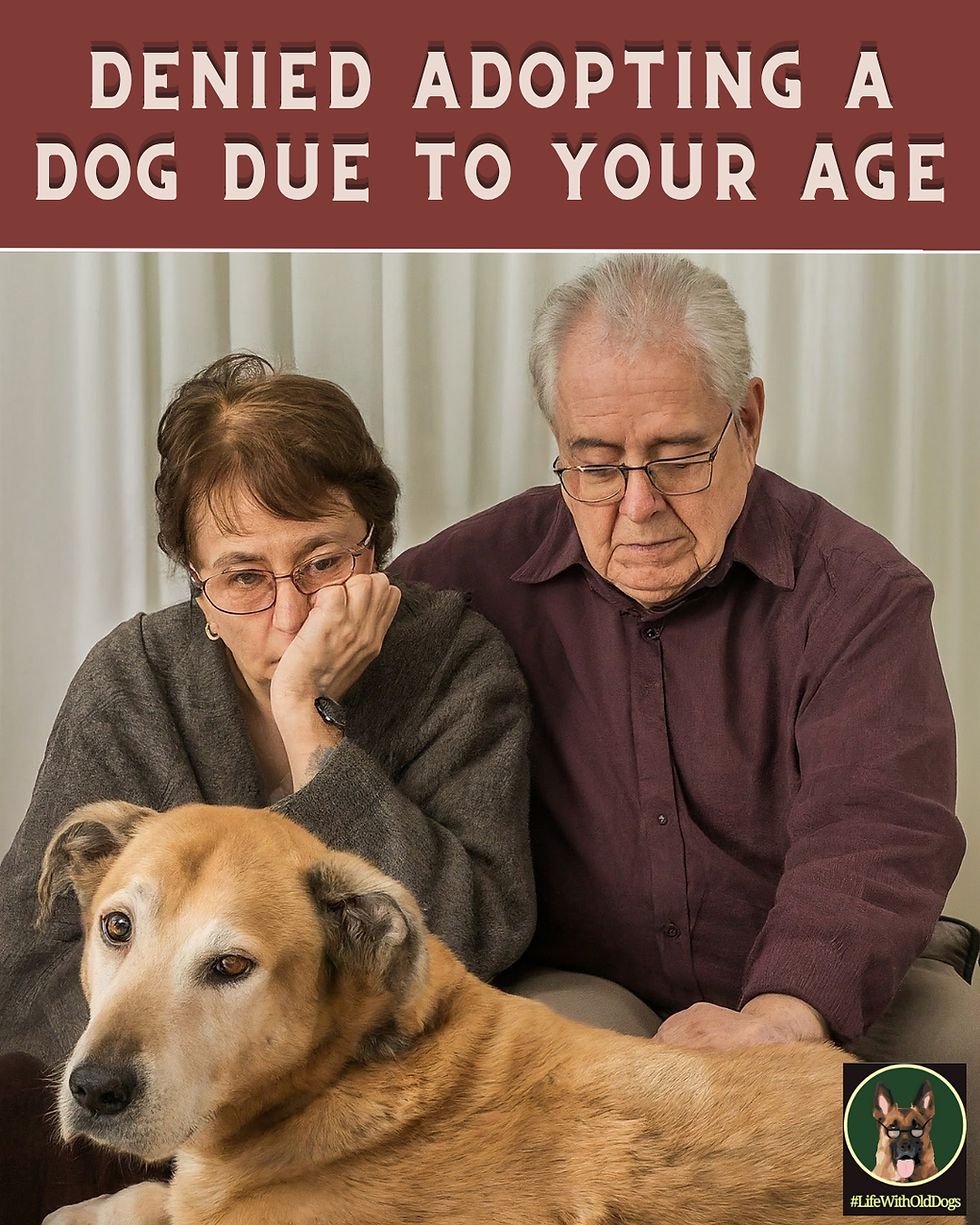Roundup, Lawn Chemicals, and Our Senior Dogs: What You Need to Know
- Dawn Mimnaugh

- Aug 27, 2025
- 3 min read

When you share life with an old dog, you see the world differently. Suddenly, every choice matters: the food they eat, the stairs they climb, and yes, even the grass they walk on.
Herbicides like Roundup (glyphosate) and other lawn chemicals are widely used to keep yards weed-free, but research shows they may come at a cost to our dogs, especially seniors with already delicate health.
In this Life With Old Dogs blog post, we will explore what the science tells us, real case studies involving dogs, and safe, holistic alternatives to keep both your yard and your furry family thriving.
How Dogs Get Exposed to Lawn Chemicals
Dogs live nose-to-ground. That means they’re far more likely than we are to absorb and ingest residues. Here’s how exposure happens:
Tracking & Drift: Chemicals sprayed on lawns can linger for days. Dogs and shoes carry them indoors, where they settle on floors and furniture.
Residues in Urine: Studies have found 2,4-D (a common herbicide) and other chemicals in dogs’ urine after lawn treatments, even in untreated homes, due to drift from neighbors’ yards.
Senior Dog Susceptibility: Older dogs have less efficient liver and kidney function, making it more challenging for their bodies to eliminate toxins. Low, repeated exposures add up.
The Science: What Studies Show
Lawn Chemicals and Canine Lymphoma
1991, Journal of the National Cancer Institute: Dogs in homes that used 2,4-D were more likely to develop malignant lymphoma.
2012, Journal of Veterinary Internal Medicine: A more robust follow-up confirmed the link between lawn chemicals and lymphoma risk.
Scottish Terriers and Bladder Cancer
2004, Purdue University study: Scottish Terriers exposed to treated lawns had higher odds of transitional cell carcinoma (TCC), a type of bladder cancer.
Herbicides Inside Dogs
2013 research: After lawn treatments, herbicides were detected in dog urine, proving that exposure is not theoretical—it’s real and measurable.
Roundup (Glyphosate): Still Debated
The International Agency for Research on Cancer (IARC) classifies glyphosate as “probably carcinogenic to humans.”
The U.S. Environmental Protection Agency (EPA), however, has said glyphosate is “not likely to be carcinogenic at typical exposures.”
A 2025 laboratory study found genotoxic effects (DNA damage) in the blood cells of Golden Retrievers when exposed to glyphosate and 2,4-D.
Bottom line: The science is still evolving, but enough evidence exists to warrant caution, especially for older dogs who may be more vulnerable.
Safer, Dog-Friendly Weed Control Options

The good news: you don’t need harsh chemicals to keep a tidy yard. Here are safe, effective methods and recipes.
1. Preventive Practices
Mulch & Smother: A thick layer of mulch (not cocoa mulch, which is toxic to dogs) blocks sunlight and prevents weeds.
Healthy Lawn Care: Mow high, overseed thin spots, and water deeply but infrequently—thick grass crowds weeds out naturally.
Sheet Mulching: Use cardboard topped with compost and mulch to kill weeds in new beds.
2. Physical & Thermal Methods
Hand-Pulling: Simple but effective, especially after rain.
Boiling Water: Pour directly onto weeds in driveway cracks or sidewalks (never on the lawn or near pets).
3. Pet-Safer Natural Sprays
Always keep pets away until the spray is completely dry.
Vinegar Spray (Non-Selective)
1 quart white vinegar (5–10%)
½–1 teaspoon mild dish soap
Spray on sunny days, reapply as needed.
Citrus Oil (D-Limonene) Products burn down young weeds quickly; safe once dry. Great for gravel or fence lines.
Iron-Based Herbicides (FeHEDTA) are selective for broadleaf weeds like dandelions, safe for turf. Dogs may re-enter the area once it is dry.
Corn Gluten Meal (CGM) works as a pre-emergent—stops seeds from sprouting. Apply early spring and late summer for best results.
What If Your Neighbor Sprays?
Even if you don’t use herbicides, your dog may still be exposed. Protect them by:
Wiping paws after every walk.
Steering clear of recently treated lawns.
Ask neighbors to give you a heads-up before spraying.
Using “clean path” mulched walkways to potty areas.
A Life With Old Dogs Takeaway
Our senior dogs have given us their best years. They’ve walked faithfully by our sides, wagged through our ups and downs, and never once questioned their loyalty. The least we can do is keep their golden years safe, soft, and chemical-free.
Choose mulch, boiling water, or iron-based spot treatments instead of glyphosate and 2,4-D. These small, intentional changes protect your best friend’s health while creating a yard you can both enjoy—without hidden risks.




Comments